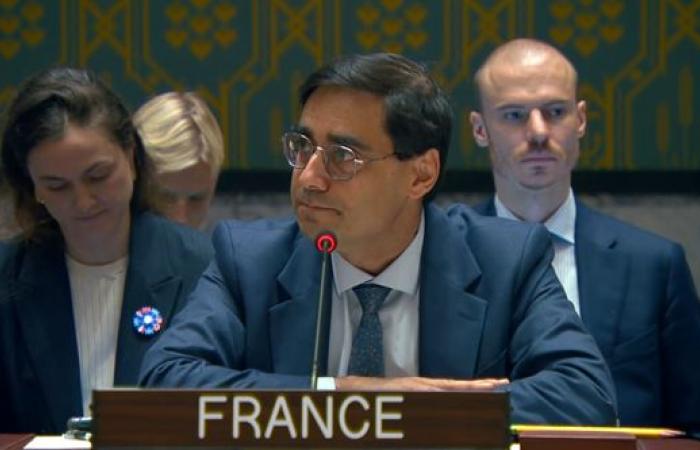
Mr President,
I would first like to thank the Director General of the World Health Organization, Mr. Tedros Ghebreyesus and Mr. Eduardo Conrad for their briefings which clearly highlight the challenges of today's Security Council meeting.
Last June, at the initiative of the South Korean presidency, the Security Council held an open debate on the evolution of cyber threats. Many States had highlighted the growing impact on international peace and security of malicious uses of information and communication technologies. Among the most severe threats are ransomware attacks.
The threat of ransomware continues to grow and worsen. In 2023, we have seen a 30% increase in this type of attack in France compared to the previous year. This growth is driven by the market availability of source codes and cyber intrusion tools, which enable multiple criminal actors to undertake these cyberattacks.
Driven most of the time by financial motivations, ransomware attacks have an impact on individuals and businesses, but also on the very functioning of essential public services and therefore on the stability of States. 10% of ransomware attacks recorded by French authorities in 2023 targeted healthcare establishments, with serious consequences on the delivery of vital care. Many attacks targeted companies in strategic sectors, research establishments, higher education establishments and public administrations.
We know that ransomware attacks can help finance the proliferation of weapons of mass destruction. The latest report from the 1718 Committee panel indicated that 40% of North Korea's illegal nuclear and missile programs are financed through cybercriminal activities.
Mr President,
To respond to these threats, it is first important to recall our attachment to the standards that guarantee the security and stability of cyberspace. As the General Assembly has affirmed on numerous occasions, international law, including the Charter of the United Nations, applies to cyberspace. States have defined, by consensus, a set of standards for responsible behavior of States in cyberspace, in order to improve the prevention and management of cyber incidents. This normative framework requires States to take all reasonable measures to prevent their territory from being used by malicious cyber actors to commit internationally wrongful acts.
France will continue to support, at the General Assembly, the work aimed at promoting this normative framework, clarifying a common understanding of it, and supporting States in its implementation. France will actively participate, in the coming year, in continuing discussions on the establishment of a permanent Action Program mechanism that would meet these objectives.
France supports and participates in the international initiative to combat ransomware launched by the United States in 2021. This initiative promotes the exchange of best practices in order to bring about a collective response to the risk posed by ransomware for our societies and our democracies.
Mr President,
As many States emphasized during the open debate organized last June under the South Korean presidency, the Security Council must also, within the framework of its mandate, take greater responsibility for cybersecurity issues. Meetings like today allow the Council to stay informed about developments in the cyber threat landscape. France remains ready to work to improve the consideration of cyber issues in the work of the subsidiary bodies of the Council, in particular with regard to the circumvention of sanctions regimes.
Thank you.





